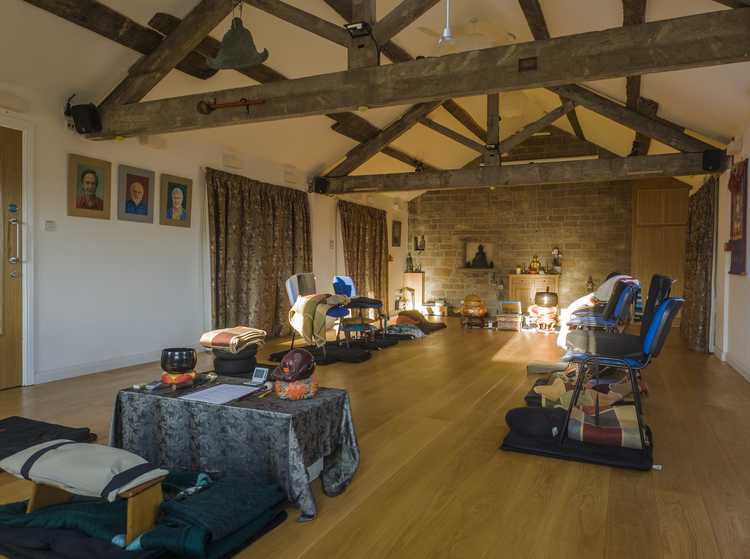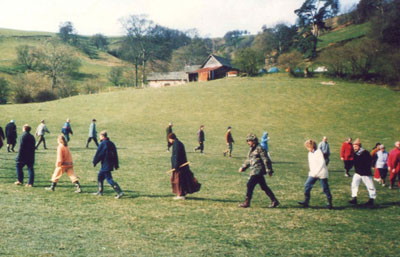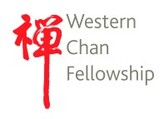Pre-booking information and advice on retreats
General Information
Our retreats are open to all members of the public aged 18 and over
- You do not need to be Buddhist (most are not)
- You do not need to be a member of the Western Chan Fellowship
Retreats usually start about 7pm on the first evening.
- Seven night retreats usually finish mid-morning
- Shorter retreats usually finish either during the morning or after lunch.
- Check the retreat details for the specifics for your retreat.
Full directions will be given on booking.
The programme may be subject to changes. Check the Retreat calendar for updates and amendments.
Before booking, you should read the general information and links below.
Before booking to attend a retreat
Be sure to understand the nature of our retreats. These are not countryside holidays, they are serious and intensive meditation events. Most retreats are silent events with no conversation permissible at any time. Most of the day is scheduled with continuous activities, comprising mostly meditation but also other activities such as work periods, exercise, and some chanting. There is usually very little or no free time, but many retreats include some rest periods and afternoon outdoor walk periods.
Consider the sample Daily Schedule and the Retreat Descriptions before making a booking.
Please book only if you intend to attend. Late cancellation or no-show incurs a penalty of 100% of the retreat fee.
What is it like to attend a Western Chan Fellowship meditation retreat?
The Western Chan Fellowship offers meditation retreats providing training in Zen insight and fresh ways of being, running disciplined Zen and Chan (Chinese Zen) retreats for over 25 years. Participants need not be Buddhist and indeed probably the majority are not.
The programme of retreats with the Western Chan Fellowship provides a range of events designed to deepen self-understanding and insight into the Buddhist path. Serious practitioners, and this includes beginners, are invited to take advantage of these rare opportunities for practice and self-discovery in an atmosphere of warmth and the cultivation of kindness.
Western Zen retreats and shorter Chan retreats are open to beginners and adepts alike. We recommend participation in one of these before enrolling for the longer and more intensive full Chan retreats of 7+ nights but we will also accept newcomers onto these retreats - details required on application.
These retreats are serious and quite demanding. Participants gain important insights into their lives and into the Buddhist path and many return for further retreats. The atmosphere is caring and supportive and ‘interviews’ (opportunities to speak one-to-one with the teacher) are always available. You are welcome to enquire further when considering whether a retreat is right for you.
Silent retreats
Our retreats are normally silent retreats. In our case we specify the rule of silence not as complete abstention from talking, but allowing talking only in certain specific and necessary circumstances e.g. the Communication Exercise which is part of the Western Zen Retreat (see below) or designated feedback sessions, and when required to achieve some task. For example in a work-period you may ask where to find the tools or what is required of the job, or at meal-table you may softly ask your neighbour to pass the bread, but you do not engage in conversation. Abstaining from conversation facilitates the settling of the mind which otherwise keeps busy processing social interactions.

Meditation Periods
Our standard length of meditation period is 30 minutes. When we have longer sessions with multiple meditation periods there will be breaks between each period. So in the early morning we may meditate for an hour, but there will be a signal after 30 minutes to indicate an opportunity to move and stretch. At other times of day the breaks at the end of each 30 minutes may include led exercises, walking meditation, free walking outside in the farm-yard, and usually also a break for an opportunity for drinks and toilets.
Some of the 'meditation periods' referred to on this page may be used for practices other than sitting meditation. Particularly on the Western Zen Retreat up to half of these periods will be used for a method we call a 'Communication Exercise'. This will be explained on the retreat, but essentially it involves a structured method of talking with other participants about what is arising in one's meditation - there is talking but this is structured so that it is not a conversation and so instead of distracting from one's practice it helps to develop it more deeply.
Typical Daily Schedule
Our retreats are structured and it is expected that those attending participate in all sessions, i.e. our retreats are not mere relaxing breaks but are well-focussed events for sustained intensive meditation practice.
The daily schedule on retreat does vary a little between different types of retreat, and different instances of the same retreat type. But in general it is as below.
Timetable
- We usually rise early and go to bed early. This is traditional, and also has practical value in maximising the use of daylight. Typically we rise at 5 a.m.
- There is a waking signal, the 'morning boards' at the rising time, and then fifteen minutes later we assemble for simple led exercises. Unless the weather is bad these will be held outside.
- Usually we have a cup of tea straight after the exercises, and then go to the meditation hall for the first meditation session. By now it will be about 35 - 40 minutes after the rising signal. We will meditate for about an hour, with the timekeeper ringing a bell after 30 minutes to indicate an opportunity to move, stretch or change sitting posture.
- Next would usually be some chanting for about 20 minutes. The Western Zen Retreat uses a mixture of Tibetan, Pali and English chants. The Chan Retreats usually use the traditional Chan Morning Service with a mixture of English and Chinese.
- After the morning chanting we go to breakfast, and after breakfast we have a work-period for 45 - 60 minutes. The work-period is mainly used for undertaking tasks to sustain the environment of the retreat - washing up, chopping vegetables, cleaning, gardening, etc.
- We usually schedule a rest-period for about 25 minutes following the work-period, and this is also an opportunity for showers etc.
- When we reassemble in the meditation hall after the rest-period there may be a Dharma talk, and then there will be several periods of meditation. Between each 30 minute period there will usually be some exercise or movement of some sort, and then a break for 5-10 minutes.
- The lunchtime schedule is similar to the breakfast schedule, i.e. meal, work, then rest, then reassemble for meditation.
- We often break in mid-afternoon and take a walk for about 45-60 minutes to ramble over the local countryside. When we return from the walk we usually have a cup of tea and perhaps some cake.
- After the evening meal most participants have a rest-period for about 45 minutes, with only two or three (rotating each evening) working for part of that period to wash up and tidy the kitchen.
- We usually finish the evening with some more meditation until about 9:45p.m. and have lights out at 10p.m.

Meeting with the Teacher
An occasion for talking is in 'interview', a one-to-one with the retreat leader. Interviews are scheduled for all participants on two or three days each retreat, and on other days there are often opportunities to request extra interviews. The main purpose of interviews is for individual instruction in meditation practice and for discussion of difficulties. It may also be helpful early in the retreat when you are settling into an unusual environment to have an opportunity for a more general informal discussion with the retreat leader.
Retreat Food / Cooking
On our retreats a trained WCF cook prepares three vegetarian meals a day, and usually also home-baked cake. They can cater where necessary for vegan, gluten-free and some other special diets, although we do ask for retreatants to stick to the standard menu whenever possible. Please specify any necessary dietary requirements on your application, or in advance of application for complex special diets.
Health and disability
Some health and disability issues may affect your ability to take part in a retreat. The retreat may be unsuitable for you, or we may need to make special arrangements.
Please read the following questions. If the answer to any of them is yes then please write giving full details to the Admin Secretary. This is important and is so that we can make appropriate preparations and give you any necessary extra information about the retreat and the accommodation, meals, etc.
- Do you have any physical or mental disability which may make it difficult for you to cope with unfamiliar places or with the physical challenges of buildings?
- Do you have any illnesses of which we should be aware e.g. Epilepsy, or Diabetes for which you take medication?
- Some people who have mental health problems can find that an intensive retreat causes difficulties for them. If you have had specialist mental health treatment in the past please let us know so that one of our retreat leaders can contact you to discuss whether the retreat will be suitable. All personal information will be kept strictly confidential.
- The food provided is vegetarian, including milk and cheese. Are you vegan or do you have any other dietary needs or allergies?
Confidentiality policy
Our policy on confidentiality is summarized as follows:
"Private communications to a senior member of the WCF, such as a retreat leader, interviewer, mentor or the Teacher of the WCF, are presumed to be confidential. If after reflection the recipient of the communication feels that silence will cause harm and greater good can be accomplished by revealing confidential information, then they must follow their conscience. Consultations with other senior members of the Fellowship are not a breach of confidentiality."
More detail is provided in the WCF confidentiality and disclosure policy which should be read in conjunction which this confidentiality statement.
Policy on photography during and after retreats
Photography is not permitted during retreats, neither in the retreat centre nor in the surrounding environment. The retreat process requires that such distractions are avoided. In addition it is discourteous to others.
At the end of the retreat there may be opportunity for a group photograph for those participants that agree to participate. There will also be opportunity for additional photography of the environment and of friends made during the retreat subject to the permission of those photographed. All photos taken after the retreat are subject to the privacy/confidentiality agreement of the retreat and should not be published on the web or elsewhere without express permission of those appearing in the photographs. If a retreatant ignores this policy, the retreatant will be asked to destroy all photos taken.
Venues
Full travel details are sent on booking. You can read about venue location and facilities before making a booking. Most of our residential retreats are held at Shawbottom Farm in the Staffordshire Peak District National Park, though we occasionally hire other venues.
Travelling to retreat, and sharing of lifts
A common concern is in arranging travel to the retreat venue, and in particular the arranging lifts for those who do not have their own transport. We do try to make available to those needing lifts the contact details of other retreatants who have offered to provide lifts to those travelling from their direction. But we cannot guarantee to arrange lifts and you should not assume that lifts will be available. There may be nobody travelling from your area, and those that are from your area may not be offering lifts.
If travelling by public transport you will also need to plan your return journey. Usually (though not guaranteed) it is possible to get a lift from the retreat centre either to a railway station.
We do not provide full details on this page of location for all venues because some retreat centres may not be open to casual visitors. Full details are provided on confirmation of booking.
For most retreats we ask you to arrive between 6pm and 7pm. We do not serve a meal on the first evening, so we advise that you plan to eat whilst travelling or alternatively bring sandwiches to eat on arrival.

Further reading on the retreat experience
Retreat Reports
You may also want to read Reports on their Retreat Experience submitted by past participants in our retreats.
On Western Zen Retreats
- Western Zen Retreat reports by past participants
- For Non-beginners and Beginners Alike: The Western Zen Retreat, by Rebecca Li and David Slaymaker
- Meditation and Personal Disclosure: The Western Zen Retreat by John Crook
On Silent Illumination and Koan Retreats
- Any of the works by Master Sheng Yen
- With particular reference to Western Chan Fellowship events see: Illuminating Silence: The Practice of Chinese Zen
- Silent Illumination, Koan and Chan retreat reports by past Chan retreat participants
Audio Talk on Koan Retreat
- Visit our audio downloads page to hear John Crook talking about the koan retreat.
©Western Chan Fellowship CIO 2003-2025. May not be quoted for commercial purposes. Anyone wishing to quote for non-commercial purposes may seek permission from the WCF Secretary.
The articles on this website have been submitted by various authors and the views expressed do not necessarily represent the views of the Western Chan Fellowship.
Permalink: https://w-c-f.org/Q362
